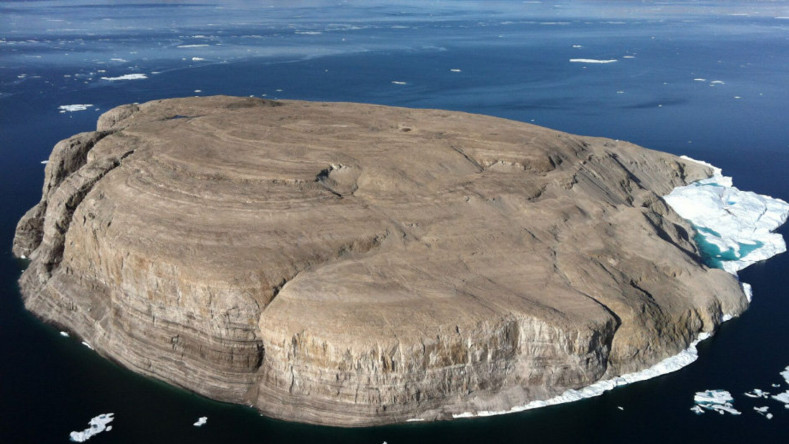
Canada and Denmark settle dispute over Arctic island
Canada and Denmark on Tuesday finally settled the largely good-natured "whiskey war" that was fought for decades with weapons such as flags and bottles of alcohol over a tiny, barren, and uninhabited outcrop in the Arctic, AFP reported.
The two sides formally announced a deal to split Hans Island and effectively create the first land border between Canada and Europe at a signing ceremony in Ottawa with Canadian and Danish foreign ministers.
Dividing up the kidney-shaped island and resolving the 49-year-old benign impasse was held up as a model for peacefully resolving territorial disputes -- contrasted with Russia's invasion of Ukraine.
"The Arctic is a beacon for international cooperation, where the rule of law prevails," Canadian Foreign Minister Melanie Joly told AFP.
"As global security is being threatened, it's more important than ever for democracies like Canada and Denmark to work together, alongside Indigenous peoples, to resolve our differences in accordance with international law."
The waggish row over the 1.3 square kilometer (0.5 square mile) Hans Island, which sits between Ellesmere and Greenland, dated back to 1973, when a marine boundary was drawn between Canada and Greenland, part of the Danish kingdom.
Danes and Canadians have visited the rock by helicopter over the past decades to lay claim to it, leading to diplomatic protests, online campaigns and even a Canadian call to boycott Danish pastries.
During those ministerial visits, each side would plant a flag and leave behind a bottle of whiskey or schnapps for the other to enjoy, along with comical notes.
"Many have called it the whiskey war. I think it was the friendliest of all wars," Joly said of the territorial dispute -- which had drawn in no less than 26 foreign ministers over the decades -- at a news conference with her Danish counterpart Jeppe Kofod.
Kofod said that its resolution, however, comes at a time when "the ruled-based international order is under pressure" and democratic values "are under attack."
Related news
Newsfeed
Videos






























